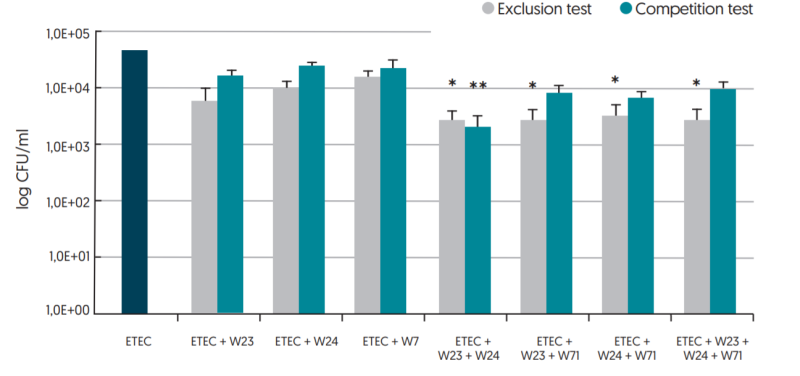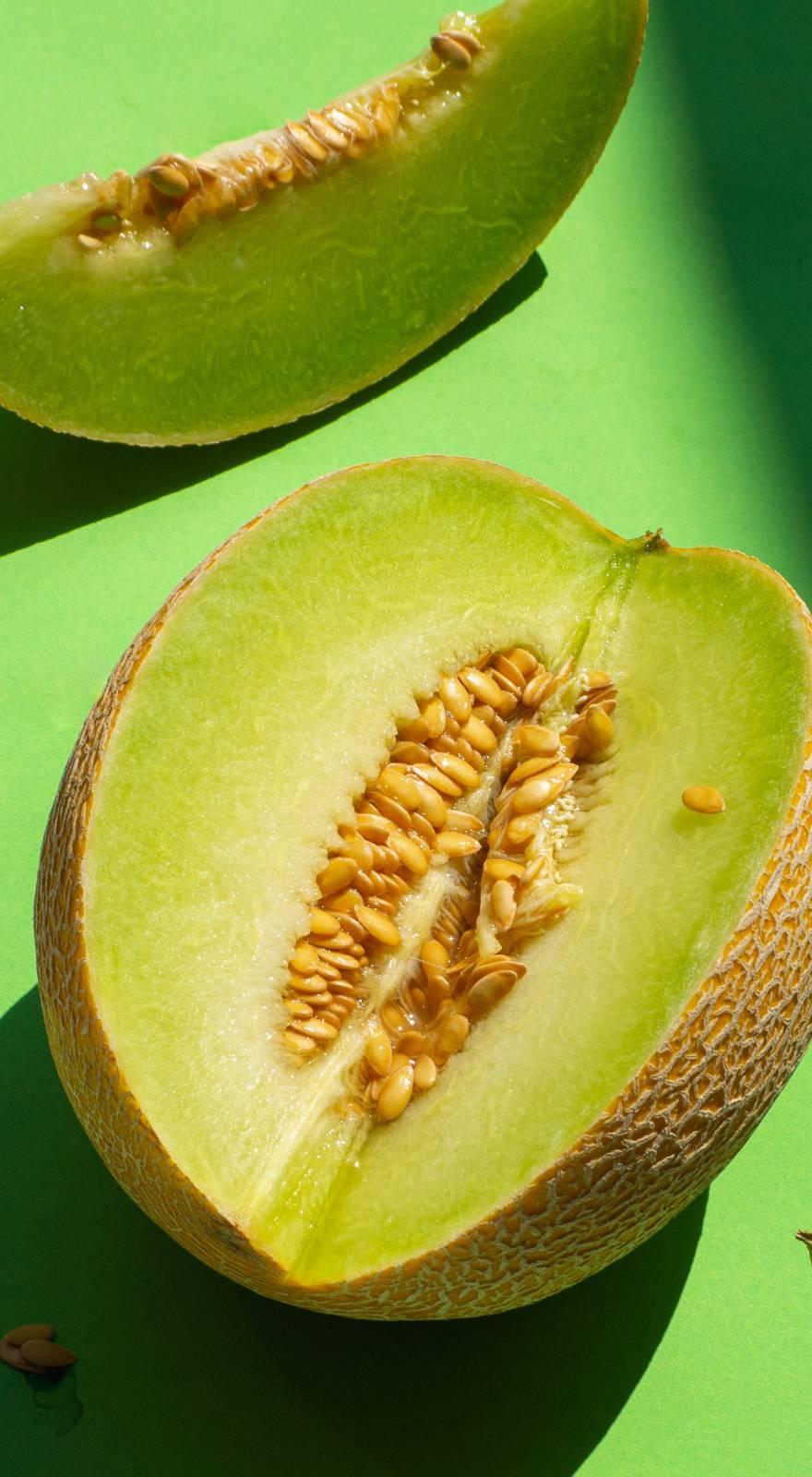Knowde Enhanced TDS
Identification & Functionality
- Ingredient Name
- Food Ingredients Functions
- Pharma & Nutraceuticals Functions
- Ingredients
- Bifidobacterium Lactis, Lactobacillus Acidophilus, Lactobacillus Casei, Bifidobacterium Bifidum, Streptococcus salivarius, Lacticaseibacillus rhamnosus, Lactiplantibacillus plantarum
Features & Benefits
- Food Ingredients Features
- Product Background
Traveler’s diarrhea (TD) is an unpleasant problem that can disrupt holidays and business trips. It usually occurs when people travel to highrisk areas -where the chance of developing TD is around 40%- such as; the Middle East, Southern and South-East Asia, South and Central America, and the developing countries in Africa1,2 (figure 1).
Figure 1: Worldwide risk areas of development of traveler’s diarrhea
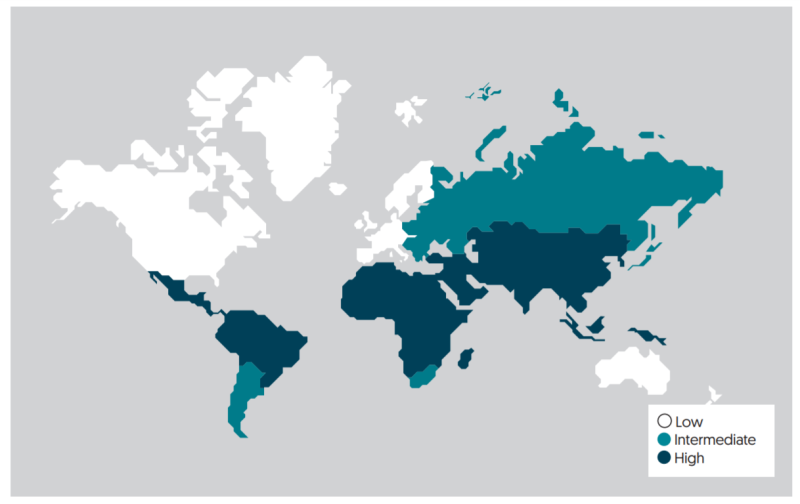
TD often starts 2-3 days after arrival and usually lasts around 2 days, although in some cases the problem may persist for 2 weeks or more. TD is often self-limiting, however, in 2-10% of the cases it may lead to persistent complaints and in 4-31% of the cases even to post-infections.3 TD is most often caused by intestinal overgrowth of the pathogenic enterotoxigenic E. coli (ETEC). Other bacteria known to be the possible cause of TD are Campylobacter jejuni, Shigella species and Salmonella species.4,5 In general, TD prevention consists of the following advice: ‘Boil it, peel it, cook it or forget it.’ However, compliance with dietary precautionary measures is poor and it has been shown that education on food and liquid consumption in foreign countries does not reduce the incidence of diarrhoea6 . Probiotics have shown protective effects against pathogens and could therefore represent a potential alternative in the prevention of TD.7-10
- Strain Selection
Winclove Travel is a multispecies probiotic formulation, developed to reduce the risk of developing TD. The formulation consists of 8 specially selected probiotic strains. Probiotic strains can exert health effects at different levels in the gut (see figure 2). The bacterial strains of Winclove Travel have been selected for their capacity to protect against pathogens known to cause TD, such as: E.coli, Shigella and Salmonella, through;
- producing antimicrobial agents
- inhibiting pathogen adhesion
- competing with pathogens for nutrients
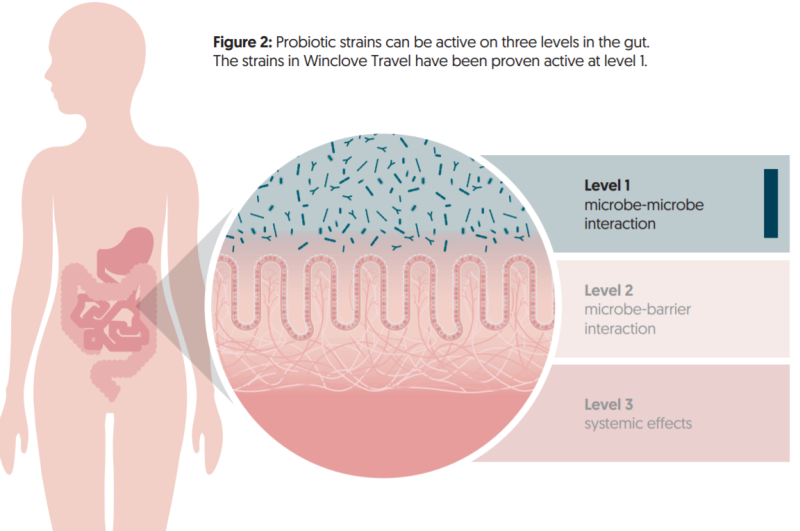
Applications & Uses
- Markets
- Food & Nutrition Applications
Properties
Regulatory & Compliance
- Certifications & Compliance
Technical Details & Test Data
- Clinical And In Vitro Evidence
Winclove Travel has been tested in a pilot study with 200 travelers traveling to highrisk areas. The travelers took 5 grams of Winclove Travel once daily, starting a couple of days before their trip. All travelers filled out a diary during their trip, scoring their defecation pattern according to the Bristol stool scale. Results show that Winclove Travel is able to reduce the risk of TD. Only 19% developed TD, which is normally 40%. Of the participants 42% stated to have benefited from the formulation (figure 3). The effect of individual, as well as combinations of Winclove Travel strains on five intestinal pathogens (S. enteritidis, L. monocytogenes, E. coli O157:H7 (ETEC), C. sakazakii, C. jejuni) has been tested in vitro.11 All the strains showed antagonistic effects against the pathogens through different inhibitory mechanisms, including; antimicrobial activity, interference of adhesion of the pathogens to the intestinal wall, and growth competition/ exclusion. Combinations of strains showed greater effect than single strains. As can be seen in figure 4, single strains reduced the invasion ability of E.coli, however, strain combinations induced an even more remarkable effect. These results confirm the importance of multispecies formulations to potentiate beneficial effects and indicate that supplementation with Winclove Travel could prevent TD.
Figure 3: Clinical evidence of 200 travelers taking Winclove Travel.
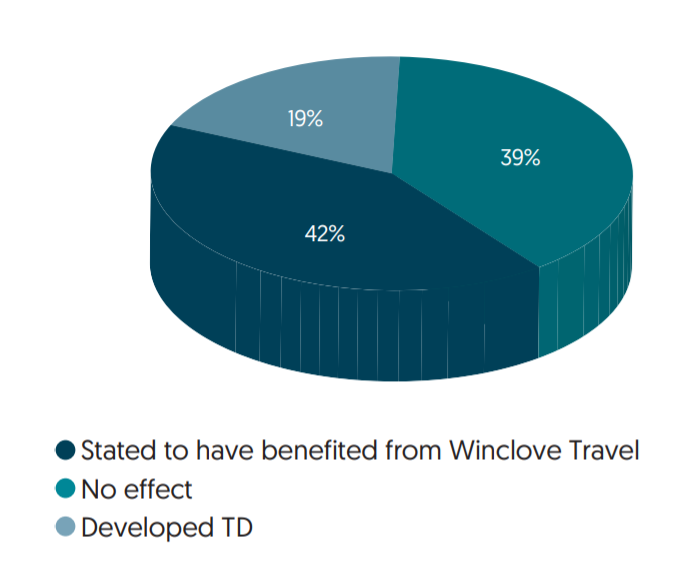
Figure 4: Invasion inhibition of ETEC by single and combinations of Winclove Travel strains measured in an exclusion and competition test. A decrease in CFUs (expressed on a log scale) indicates inhibition. * Significant effect (P <0.05).
